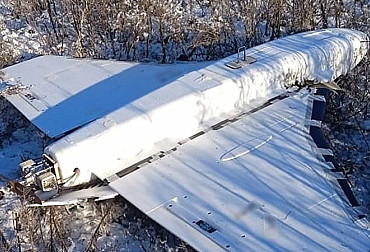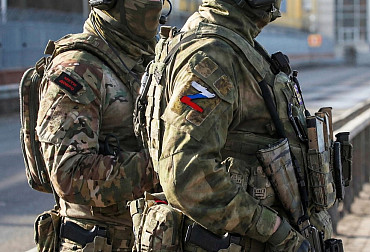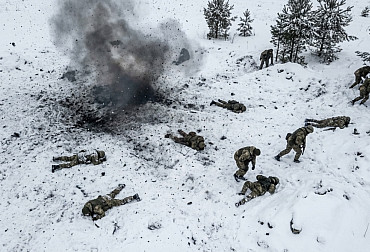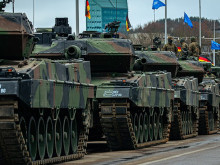Resistance and defence against hybrid action. The main adversaries in this domain are also Russia and China
Strengthen the resilience of Czech society, the Czech state and critical infrastructure; set up a systemic and holistic approach across the state; and build the capacity for adequate and timely response. These are the main objectives of the National Strategy for Countering Hybrid Operations, which was approved by the Government in April 2021. This strategy is then developed in the Action Plan, an updated version of which, 2024-2025, was adopted by the Government in early December 2023.

Hybrid threats have been talked about intensively for several years (the first explicit mention appeared in the 2016 National Security Audit), and it is a clear fact that not only the Czech Republic must constantly adapt to new trends and learn to deal with this multidimensional problem, especially in today's rapidly deteriorating security environment. The National Strategy for Countering Hybrid Operations is one of the strategic documents based on the Security Strategy ("State and non-state actors can threaten the security of the Czech Republic through hybrid operations, which focus in particular on vulnerable areas of democratic society."), the Defence Strategy ("Our state, society and armed forces are exposed to systematic hostile hybrid operations. Cyber-attacks, disinformation campaigns, economic coercion, and sabotage, subversion and intelligence activities pose a threat to the Czech Republic") and is also related to the National Cyber Security Strategy of the Czech Republic. And since the Czech Republic is part of NATO and EU structures, it naturally takes into account the principles contained in the strategic documents of these organisations. For example, in December 2022, the Ministry of Defence of the Czech Republic negotiated a common EU tool for defence against hybrid threats, the so-called Hybrid Toolbox (EUHT).
In particular, in response to Russia's aggression against Ukraine, NATO allies are also strengthening their national resilience to hybrid threats, seeking to improve their ability to understand hybrid threats - specifically threats arising from strategies employed by Russia and China. Russia has sought to destabilize allied democracies by conducting hybrid campaigns that include cyberattacks, disinformation campaigns, and energy blackmail, and more recently by using migrants against Finland, the Baltics, and Poland. NATO is also dealing with China's opaque military development, its technological advances and its malicious cyber and hybrid activities, confrontational rhetoric and disinformation.
The Czech National Strategy defines hybrid threats broadly as follows: "Hybrid activity is the covert or overt activity of state or non-state actors (hybrid actors) directed against vulnerable elements of a democratic state and society. Hybrid actors use political, diplomatic, informational, military, economic, financial, intelligence and other tools to undermine democratic institutions, rule of law processes and internal security. Hybrid activities also use legal and legitimate-looking tools to achieve hostile goals and act against the interests of the Czech Republic. The speed, scope and intensity of hybrid activities are increasing, including as a result of the development of new technologies." The aforementioned National Security Audit defines three key areas: acting against the cohesion and ideological-value anchoring of society; acting against a functioning economy; acting against the security of the state and citizens.
At its meeting on 7 December 2023, the Government of the Czech Republic took note of the Action Plan to the National Strategy for Countering Hybrid Actions 2024-2025. Compared to the previous version, it introduces so-called milestones, which serve to monitor the implementation of individual tasks more clearly and to make them more assessable. It sets out the tasks according to the three pillars of the strategy: a systemic and holistic approach, strengthening the resilience of society, critical infrastructure and the state, and the ability to respond adequately. The Action Plan elaborates the essentially opaque topic of hybrid threats into a clear table of tasks and sets out the responsibilities of specific ministries for their implementation. These are primarily the Ministry of Defence, but also the Ministries of Industry and Trade, Education, Interior, Foreign Affairs and the National Cyber and Information Security Authority (NCIS).
In the area of a systemic and holistic approach within the Czech Republic, the Action Plan sets out three tasks, two of which are the responsibility of the Ministry of Defence. These are the ongoing development of a national network of experts to carry out research, awareness-raising and other projects; and the creation of a concept document aimed at preparing citizens for national defence (POKOS), with a deadline of the second quarter of 2024. The creation of a strategic framework for ensuring economic security is then a task for the Ministry of Industry and Trade.
The Ministries of Education and the Interior in particular are tasked with the resilience of society, the state and critical infrastructure: "To integrate media education into the strategies and framework educational programs of primary and secondary schools, to methodically support teachers of kindergartens, primary schools, secondary schools in the field of civic education and media literacy, and to support the integration of media education into the education of students of pedagogical faculties", "Extend the current system of training to strengthen resistance to illegitimate influence to mandatory training for state officials and recommended training for local government officials, including the use of e-learning platforms", "Extend training to increase resistance to illegitimate influence to the higher education and research environment, the private sphere and the general public where possible. "
In addition, the Ministry of the Interior is to continuously and systematically monitor and analyse hybrid influence and its impact on internal security, to conduct exercises in cooperation with the Defence and the NCIB to increase the resilience of government institutions, and the Ministry of Industry and Trade is to contribute to raising awareness of foreign investment screening and economic security among the private and public sectors through the development of a set of recommendations and through seminars, training and a communication campaign. The Ministry of Foreign Affairs is to, among other things, conduct systematic monitoring and analysis of the impact of hybrid activities in the media and public online space in areas related to the protection and promotion of the Czech Republic's foreign policy interests.
The last area, i.e. the ability to react adequately and in a timely manner, falls within the competence of the Ministry of Defence, which is tasked with developing a system of indicators designed to detect hybrid activity and continuously applying it in selected sectors of the state administration and creating (by the end of 2024) a set of possible responses to detected hybrid activity in the Czech Republic.
In this context, let us also recall the widely discussed annual report of the Military Intelligence for 2022, especially the passage Hybrid Action and Moral Panic: "At the same time, the deepening vagueness and indeterminacy of meaning of the terms mentioned above also led to cases where some political and social actors began to use them to refer to true information that was not in line with the ideas they were promoting, and where criticism of government policies was even conflated with the propagandistic action of a foreign power, which could lead to the exclusion of some previously legitimate voices from the political debate. " And also the "second life" of this part of the annual report - the misuse of these warning words by the so-called disinformation scene de facto directly as a tool of hybrid action. This strongly suggests that the pillar of "strengthening the resilience of society, critical infrastructure and the state" and the tasks set out in the area of education and training in particular have an irreplaceable role to play. A balanced and at the same time effective approach by the responsible institutions is an extremely difficult task - and, as in the case of the Military Intelligence Annual Report, any mistakes or principles and tools taken out of context can backfire.



















